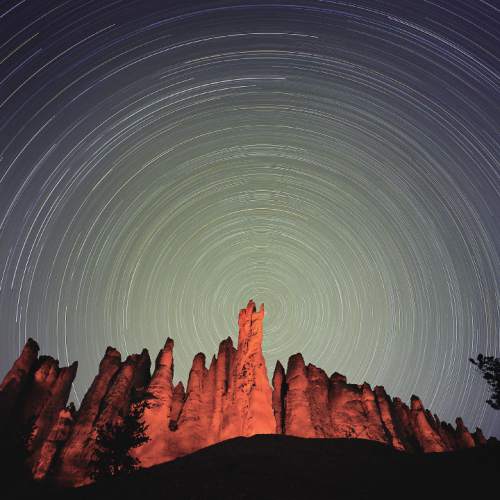This is an archived article that was published on sltrib.com in 2014, and information in the article may be outdated. It is provided only for personal research purposes and may not be reprinted.
Sunday was the winter solstice, which means Sunday night was the longest of the year. But was it also the longest night ever in the history of nights?
It makes sense to think so. Science blogger Colin Schultz pointed out back in 2009 that the Earth's rotation is constantly slowing down ever so slightly, and it has been for a long, long time. Vox dug up the post and wrote about it, getting it a lot of attention over the last day.
But why is the Earth slowing down?
The moon not only stretches the Earth as it orbits us, but, as every child in school learns, it causes tides. Those tides generate friction that slow down Earth's rotation over millions of years.
But here's the thing — many other factors affect the speed of Earth's rotation, which Vox pointed out in a post Sunday night after a couple scientists brought the data to its attention. For instance, melting ice caps at the poles have redistributed the Earth's mass, causing it to speed up a bit.
Not only that, but the movement of fluid in the Earth's core also speeds it up and slows it down from time to time. According to geodesic scientist Ryan Hardy, the longest night ever was probably in 1912, by just under four milliseconds.
Still, Sunday night was pretty long by Earth's standards. Certainly one of the longest ever. And they'll keep getting longer, on average, forever. For what it's worth, sunrise on Dec. 21 was 7:48 a.m., and 7:49 a.m. Dec. 22, according to dateandtime.com. Though this is surely not the most accurate measure.



